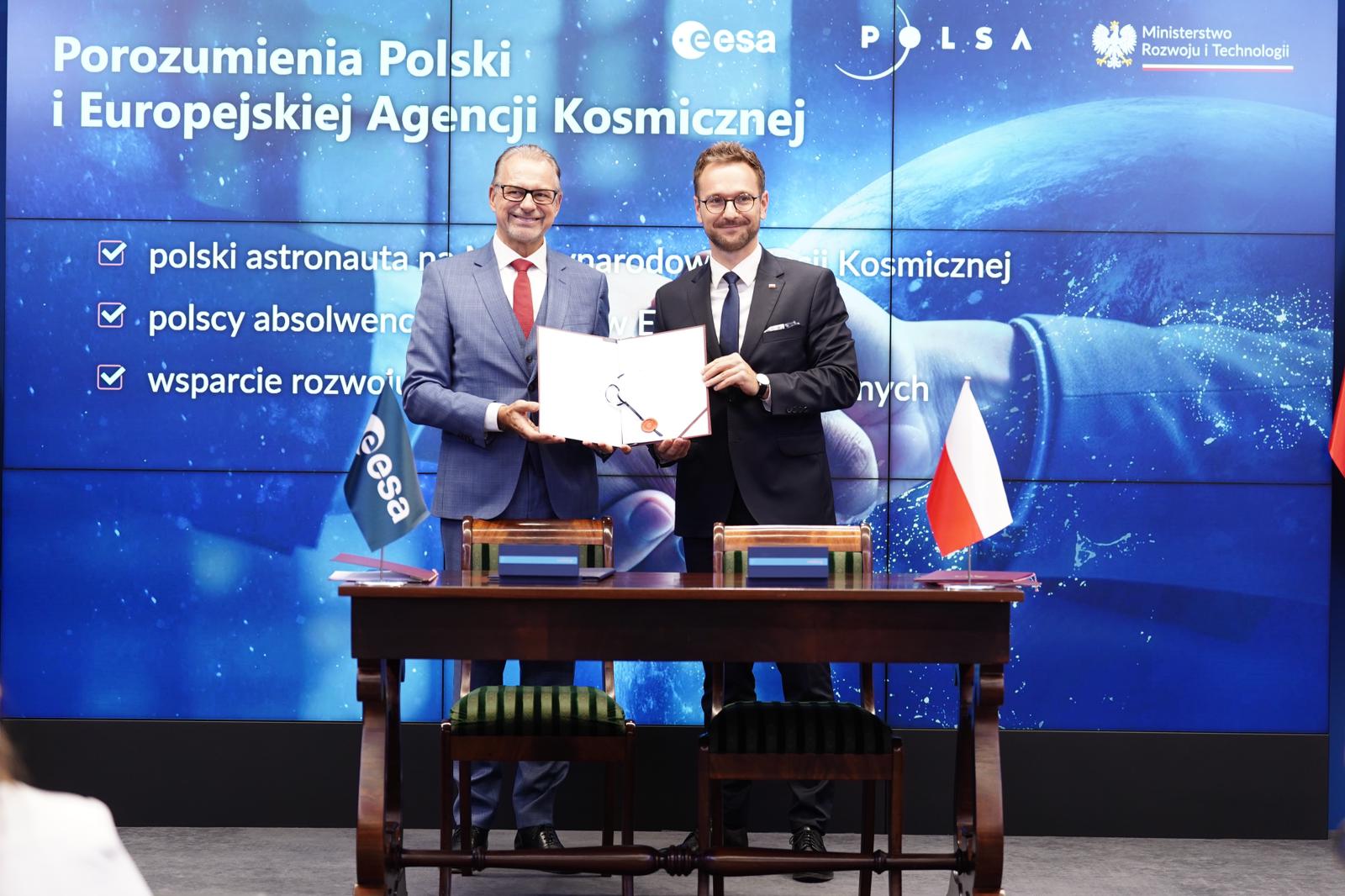Poland and the European Space Agency (ESA) have signed a series of agreements that will see a Polish astronaut take part in a mission to the International Space Station (ISS) next year.
The agreements between Poland and the ESA will not only see a Polish astronaut fly to the ISS, but also envisage internships for Polish graduates at the ESA and support for the development of Polish space technologies.
The agreements were signed by Polish Development and Technology Minister Waldemar Buda and the Director General of the ESA Josef Aschbacher.
Minister Buda told a press conference dedicated to Poland’s increased involvement in the exploration of space that Poland has already identified a potential candidate to be the astronaut who will participate in the ESA mission, but that he must pass the relevant tests.
The astronaut chosen will actually carry out tests in space on technologies developed by Polish firms. The mission is planned for the second half of 2024. As Remix News reported previously, the man chosen is Dr. Sławosz Uznański who on Sept. 4 will begin training in Cologne and who is already a reserve astronaut for the ESA.
However, he will not be the first Pole in space. That honor belongs to Mirosław Hermaszewski, who flew for the Soviets in the 1970s.
The internships envisaged in the agreement with the ESA are to involve 30 individuals over a period of three years. Minister Buda said that the space industry in Poland is developing well and involves over 400 firms. He hopes that the agreement with the ESA will help many of these companies, especially startups, to reach the next level.
According to Buda, the agreement with the ESA on supporting the technological development of Polish companies is worth €7 million, but he explains that a far more important aspect of the agreement lies in Polish participation in projects involving geographical information systems that will allow for financing to help familiarize Polish industry with ESA programs.
Aschbacher welcomed Poland becoming a country that invests in space research and that is thinking of a future in space. He was pleased Poland understood the need for the ESA to increase its funding so that it can get closer to the level of NASA.






